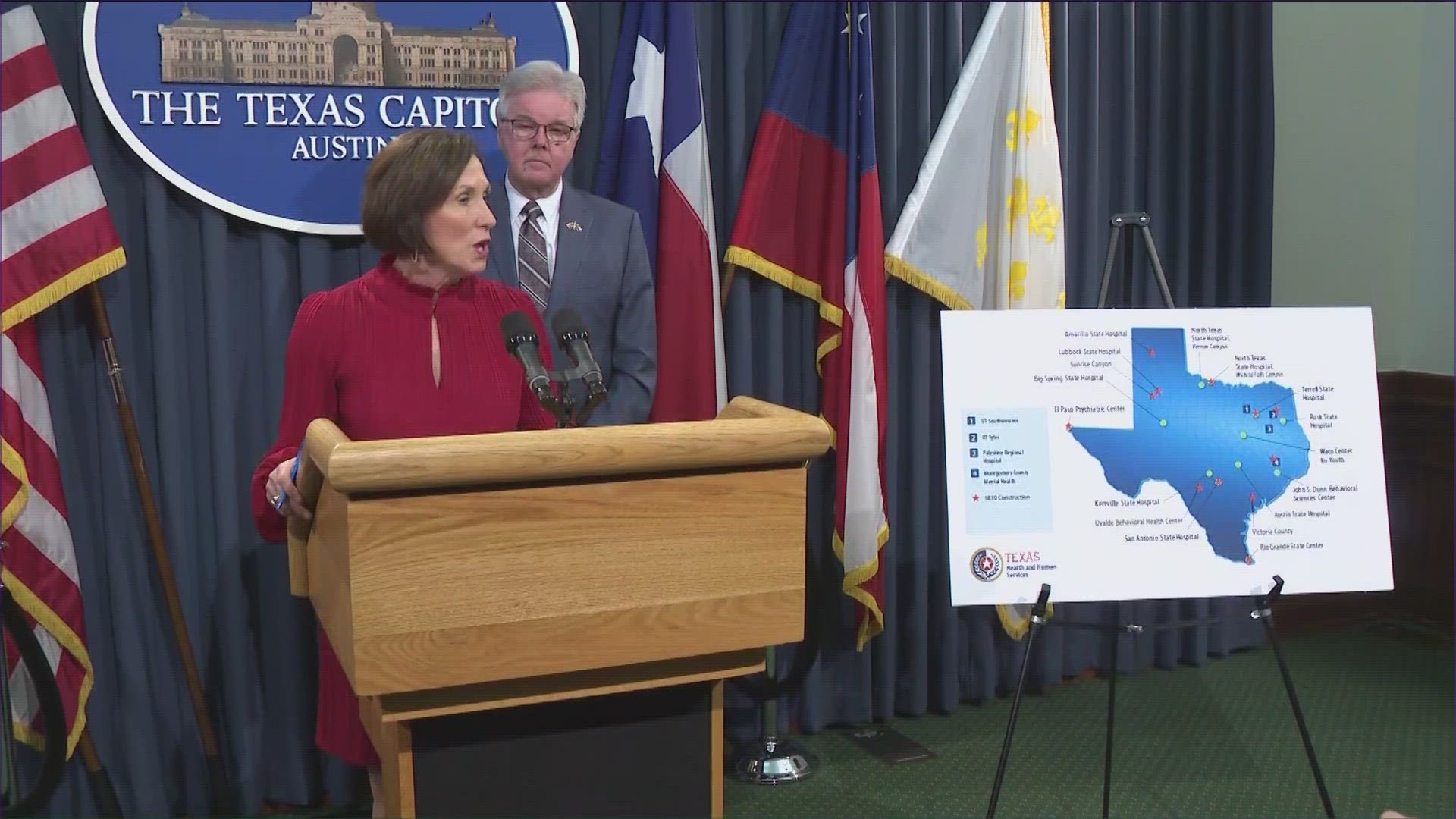AUSTIN, Texas — Lt. Gov. Dan Patrick spoke at a press conference Thursday morning about two Senate bills aimed at improving mental health throughout the state.
The two bills Patrick addressed were Senate Bills 25 and 26, both authored by State Sen. Lois Kolkhorst. The bills aim to help the shortage of nursing staff, increase the number of beds for psychiatric patients and prisoners and increasing funding for state-run hospitals.
According to Patrick, these bills are an expansion of over $2 billion out of the state's surplus. The plan is to add beds to existing hospitals and make it easier for those in rural areas and smaller towns to access care.
SB 25 will create a scholarship and loan repayment program that would allow nursing students to go to school with less of a financial burden for students. Once the student becomes a registered nurse, if they want to participate in the loan repayment program, they have to meet the following requirements:
- Be employed part-time or full-time at time of application for at least one year
- Be currently employed part-time or full-time
- Be a faculty member of a nursing degree program at a higher education institution
If a nurse qualifies, the bill would allow nurses to be repaid for every year that they are a faculty member of a nursing degree program at an institution – but it cannot exceed five years. The maximum amount of assistance a nurse can receive is $7,000 in one year.
"We need nurses, so we're paying the full ride for nurses ... you'll have all of this in the biggest package of mental health care ever designed in the United States, and I'm proud as lieutenant governor – my staff told me this last year– we have invested more [in] mental health care since I have become lieutenant governor from the Senate," Patrick said. "We need to do more because we do not have enough beds to meet the need."
SB 26 is aimed at helping State-operated hospitals and community-based organizations expand their capacity to better serve mental health needs. The Health and Human Services Commission will provide a grant-matching program to support these communities and improve early intervention for children and families.
The bill will prioritize hospitals that work with children and family members of children that are at a high risk of experiencing a mental health crisis. The effort is to reduce the number of children at risk of being placed in foster care or the juvenile system. Any hospital provided a grant will be allowed to use the money to improve strategies in care that would improve resiliency, coping and social skills, healthy social and familial relationships, and parenting skills.
According to Kolkhorst, there is a waitlist for those seeking beds, both forensic and civil, across the state and there is a growing shortage.
"It was absolutely shocking that out of almost 2,500 people that were waiting on the bed list, all but 73 were waiting for forensic beds," Kolkhorst said.
Forensic beds are used for those in prison to determine if they are fit for trial and other mental health needs. The beds that will be provided are being placed in "strategic" areas throughout the state, according to Kolkhorst, to provide underserved areas that need more forensic beds and other child protective service needs.
"A perfect plan, maybe not yet, but I can tell you, it's a plan and it's a way forward," Kolkhorst said.
Additionally, respite beds for those who are suffering a mental health crisis will also be added and be placed across the state. The beds would allow people in these crises to be on a 72 hold for someone to "cool down," according to Kolkhorst, so they don't go to jail or commit a crime during that period of time.
Around $3.5 billion will be invested into the mental health across the state through these bills.
If both bills pass, they will go into effect on Sept. 1.

